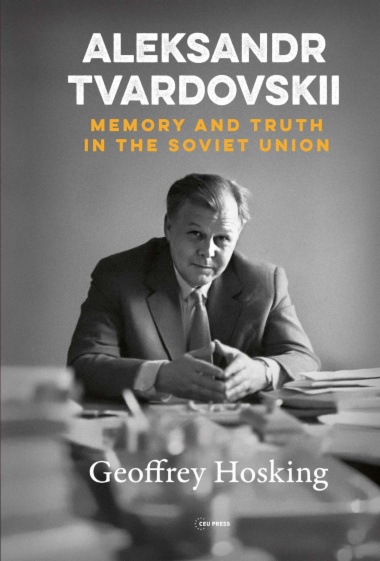Aleksandr Tvardovskii was not only one of the finest, most popular and most important poets of his epoch, but also the editor of Novyi mir, the most prominent Soviet literary journal of the postwar period until the 1970s. This book is a detailed biography of the writer and journal editor who probably changed the literary culture of the Soviet Union more than any other person in the two decades after Stalin's death. Geoffrey Hosking shows how Tvardovskii gradually evolved from being an ardent Stalinist who renounced his own so-called “kulak” family to becoming a convinced advocate of tolerance, an all-human morality, civil rights, and free literary creativity.
By giving a balanced account of his strengths and weaknesses, his achievements and failures, the author succeeds in giving the fullest picture available anywhere of a controversial man who turns out to be more complex than he has been portrayed so far. To understand him better is to understand why the Soviet intelligentsia changed so fundamentally in the USSR’s final decades, a change that helps to explain the rise of Gorbachev twenty years later. The study—which includes an in-depth analysis of Tvardovskii’s major works—also helps to better understand the fate of culture under an authoritarian regime and the intricacies of the struggle against censorship.
- Front cover
- Title page
- Copyright page
- Table of contents
- Figures
- Preface
- Introduction
- Chapter 1. Childhood and Youth
- Aleksandr leaves home
- Aleksandr’s political beliefs
- Chapter 2. Precarious Existence in Smolensk
- Early struggles
- The family crisis
- Chapter 3. Creativity and Danger
- Chapter 4. The Literary Terror
- Chapter 5. A Correspondent at War
- The German war
- In Moscow
- At the front again
- Chapter 6. Vasilii Tiorkin
- Chapter 7. After the War
- The postwar Soviet Union
- Tvardovskii’s integration into postwar society
- Literary life after the war
- Party control
- Tvardovskii’s post-war experience
- Chapter 8. Novyi mir, 1950-54
- Settling into his mission
- Agricultural policy
- Stalin’s death
- Chapter 9. Achievement and Humiliation: Grossman's Stalingrad
- The novel’s tortuous publication
- The stormy aftermath
- Chapter 10. Tvardovskii's First Resignation
- Chapter 11. Interregnum: Tvardovskii's Personal and Public Crisis
- Chapter 12. Simonov’s Novyi mir
- Tvardovskii on course to return to Novyi mir
- Chapter 13. The Tragedy of Aleksandr Fadeev
- Chapter 14. Tvardovskii’s Return to Novyi mir
- Why was Tvardovskii able to return?
- The new atmosphere at Novyi mir
- Tvardovskii’s program:Overcoming trauma and collecting memories
- Tvardovskii’s own convictions
- Chapter 15. Editing Novyi mir
- Letters to authors
- Editorial practice
- Some important publications
- Shedding illusions
- Chapter 16. Ivan Denisovich: The Apogee of Novyi mir
- The significance of Ivan Denisovich
- After Ivan Denisovich
- Tiorkin in the other world
- Chapter 17. The Reaction Begins
- The Lenin Prize
- The opponents of Novyi mir
- Chapter 18. Open Conflict
- The fall of Khrushchev
- Novyi mir after Khrushchev
- The authorities’ dilemma
- The Siniavskii-Daniel’ trial
- The regime fights back
- Chapter 19. Solzhenitsyn: Admiration and Ambivalence
- Reaction in the Writers’ Union
- Chapter 20. The Russian Problem
- Promoting Russian patriotism
- Chapter 21. Tvardovskii’s Final Struggle
- The regime’s counter-offensive
- Tvardovskii’s other campaigns
- The Czechoslovak crisis
- Further pressure on Tvardovskii
- Russian discontent
- Chapter 22. The End of Tvardovskii’s Novyi mir
- Chapter 23. After Novyi mir
- Bibliography
- Index
- Back cover

